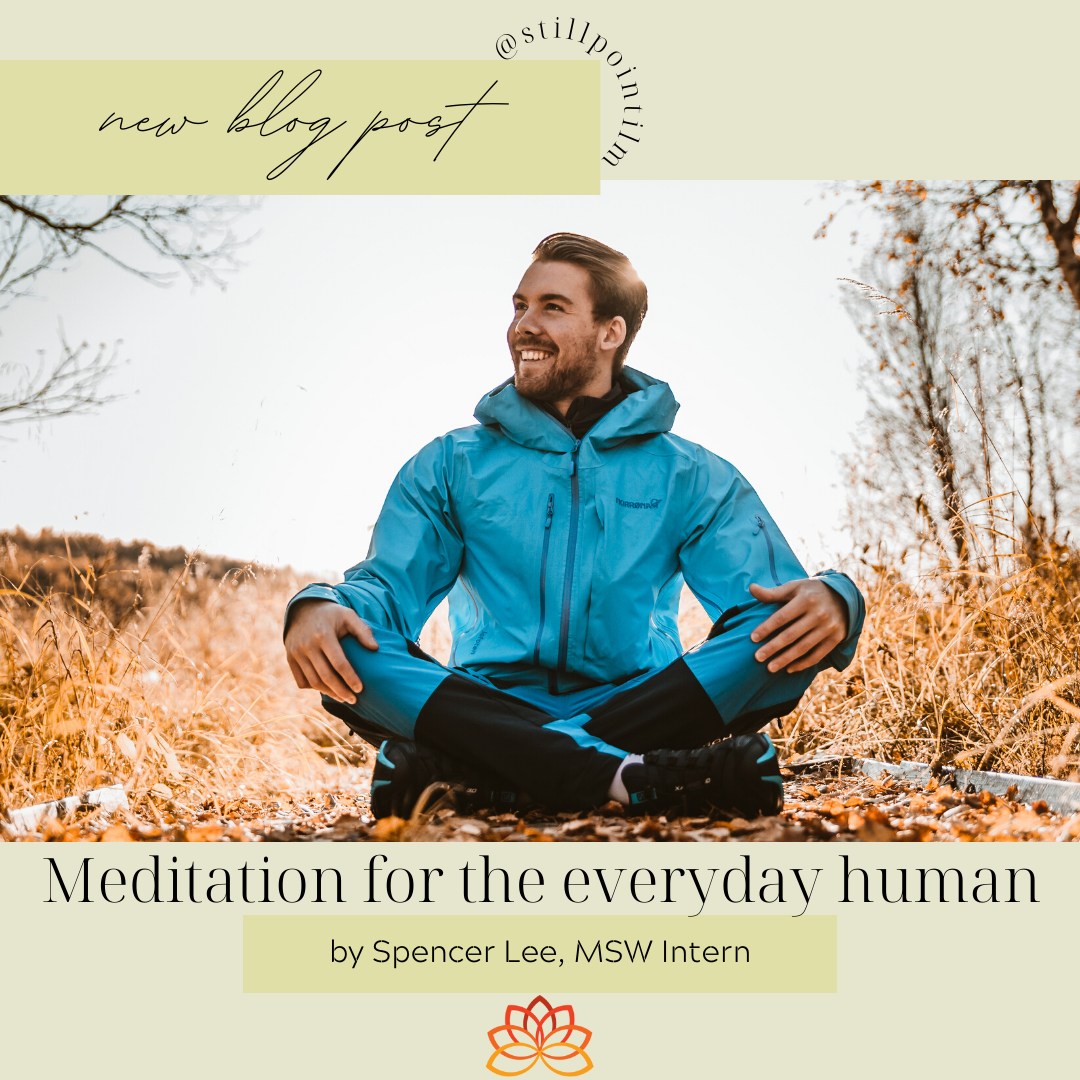Meditation for the Everyday Human
by Spencer Lee, MSW Intern
I think at some point or another we’ve all had this idea in our heads that meditation is reserved for Buddhist monks on a journey to reach Nirvana. It seems like the monks who meditate would be good at it; they’re calm, focused people with few obligations outside of meditating. And these people that meditate are totally different from us- everyday people with life’s responsibilities on our shoulders. So, how are we expected to do the same thing? How can we be great meditators? How can we get some of the same benefits from meditation that the Buddhist monks do?
First, let’s cover what mediation is and what’s so great about it.
Meditation is about really tuning in to your body and letting sensations, thoughts, and feelings come and go as they please. We are human, so it is natural and healthy for our minds to wander, for feelings to arise and for our bodies to have sensations. The act of noticing these things without attaching meaning to them or trying to manipulate them is meditation. The goal is to become an observer of what is happening inside and outside of your body- to free you from them. Meditation gives you an opportunity to step away from stimuli you would normally react impulsively to, and choose to accept and respond when you are ready.
Here are some paradoxes about meditation that I think keep the everyday human from practicing meditation, along with reasons why the everyday human should meditate.
-
There is no success or failure in meditating. In fact, if we are focused on the idea of meditating successfully, we are not as well equipped to focus our attention on our sensations, thoughts, or surrounding stimuli. Holding onto the idea of needing an A+ in meditation promotes judgement, when meditation is about promoting acceptance. “Success” in meditation is more likely to occur when we throw the idea of success out the window and solely.
-
It must be easy for the monks to meditate because they’re cool, calm, collected people. They’ve probably never had trouble focusing before or difficulty managing their emotions. Interestingly, the benefits of meditation- stepping away from thoughts and emotions, gaining mental clarity, achieving a sense of calm- are most helpful for people with do not possess those monk-like characteristics. Meditation is a practice; the more you do it, the better you become. After a while, you will see an increase in attention span and ability to become the observer of yourself and your surroundings, becoming more monk-like if you will.
-
The same idea applies to people who don’t have time to meditate. The monks make it look easy because they don’t have nearly the responsibilities we do. They can meditate whenever they want! Well, what if I told you that meditation is most helpful when we feel we don’t have the time for it. Meditation can act as a sort of recharge for us. Taking a few minutes to settle can increase our mental clarity and even energize us to go about the rest of our busy day more effectively and with less stress.
Meditation is a practice, and it becomes a skill we can hone. The more we meditate, the more “successful” we become at it. The more we meditate, the better we become at focusing for longer periods of time, the better we’re able to sit with our thoughts and feelings, gaining the freedom to choose between reacting and responding. The stress of being “good” at meditating, coupled with limited time and certain innate characteristics that sometimes make meditation difficult at first shouldn’t keep you from trying it out. What I’ve learned here is that the people who could benefit the most from meditation tend to do it the least. And the people who do it the most, are probably onto something.
